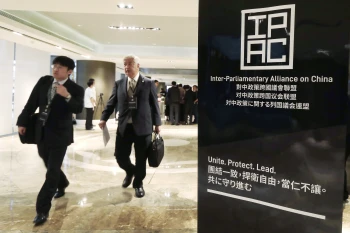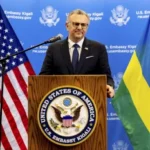As the geopolitical landscape shifts, Africa finds itself at the center of a strategic contest between global powers. With the United States gradually pulling back its diplomatic engagement, China is seizing the opportunity to bolster its influence on the continent. This article explores how Beijing is ramping up its diplomatic pressure in Africa and what it means for the future of international relations on the continent.
The Changing Dynamics of U.S. Engagement
Historically, the United States has been a dominant player in African affairs, with initiatives focusing on economic development, health, and security. Programs like the African Growth and Opportunity Act (AGOA) and PEPFAR have underscored U.S. commitments. However, there has been a noted decline in American involvement in recent years, a trend exacerbated by shifting priorities following the COVID-19 pandemic and a more isolationist foreign policy stance under various administrations.
The reduced focus from Washington has created a vacuum that China is more than willing to fill. With a steady stream of investments and loans, Beijing’s strategy in Africa has shifted from mere economics to a concerted effort to establish a deeper diplomatic foothold.
China’s Diplomatic Offensive
China’s influence in Africa has grown exponentially over the last two decades. From 2000 to 2021, China’s trade with African nations increased from $10 billion to over $200 billion, making it one of the continent’s largest trading partners. Furthermore, Beijing has implemented a variety of soft power strategies, such as cultural exchanges and development assistance, to gain favor among African nations.
President Xi Jinping’s announcement of the “Belt and Road Initiative” (BRI) further solidified this approach, with China investing heavily in infrastructure projects across the continent, including roads, railways, and energy systems. This infrastructure investment not only provides essential services to African nations but also cements China’s role as an indispensable partner in economic development.
Strategic Alliances and Military Presence
In tandem with economic ties, China is forging strategic alliances with African nations. The establishment of the China-Africa Cooperation Forum has facilitated high-level dialogues and partnerships in various sectors, from trade to technology transfer. These alliances are particularly attractive to African countries seeking to diversify their sources of foreign investment and reduce reliance on traditional partners like the U.S. or European nations.
Moreover, China is expanding its military presence in Africa. The opening of its first overseas military base in Djibouti in 2017 signifies a long-term commitment to securing its interests on the continent, particularly in combating piracy and ensuring the safety of shipping lanes. This military engagement, although described as protective, further intensifies the geopolitical struggle as countries weigh their affiliations.
Implications for African Nations
The increasing diplomatic pressure from Beijing comes with both advantages and challenges for African nations. While Chinese investments can spur development and infrastructure growth, they also risk creating dependencies characterized by “debt diplomacy.” Countries such as Zambia and Djibouti have faced significant financial challenges due to heavy borrowing from China, raising concerns about national sovereignty and economic stability.
Furthermore, as U.S. influence wanes, African nations may find themselves navigating a challenging landscape of competing interests. The allure of Chinese investment must be balanced with the need for sustainable development and governance, prompting leaders to adopt an approach that prioritizes their nations’ long-term interests.
Conclusion
As the United States pulls back, China’s diplomatic surge in Africa is reshaping the continent’s political landscape. With investments flowing in and strategic partnerships solidifying, Beijing’s influence is set to grow. How African nations respond to this dynamic, balancing their relationships with both emerging and established powers, will be critical in defining Africa’s role on the global stage in the coming years.
Email Us on editorial@nnafrica.com













